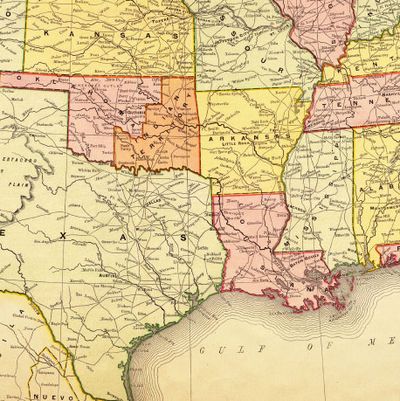
Blue and red states are moving further apart on the issue of abortion, according to a new Pew Research survey, which indicated a rising anti-abortion belt in the south-central U.S. In Kentucky, Tennessee, Alabama, Mississippi, Louisiana, Arkansas, Texas, and Oklahoma, opposition to legal abortion — people who say abortion should be illegal in all or most cases — has jumped 12 percentage points since 1995, NPR reports. There is now a 35 percentage-point gap in abortion sentiment between the anti-abortion belt and the country’s most liberal region, New England, where support for abortion grew 5 percentage points in the same period.
The growing opposition is neatly reflected in the anti-abortion belt’s state capitals. In the past three years, all but Tennessee have passed laws that would shut down clinics or otherwise restrict women’s access to abortions (such as waiting periods or mandatory counseling) — often coupled with new limits on how late in the pregnancy women can have abortions — most of which have been temporarily blocked, pending trial. Even though more than half of South-Central Americans believe abortion should be illegal in most or all cases, the personhood amendments that would make all abortions illegal have yet to survive a referendum or ballot measure.
What are the consequences of the growing rift? An obvious one is that anti-abortion-belt women will have to travel farther to get abortions. In a recent Guttmacher Institute study (h/t Jezebel) of 2008 abortions, women living in states with mandatory waiting periods or in-person counseling were more than twice as likely to have to travel greater distances to get abortions. One third of women traveled more than 25 miles for an abortion and 31 percent of women who live in rural areas traveled more than 100 miles. (And this was 2008, before the legislative movement to shut down abortion clinics picked up speed.) Which gets at the particularly maddening paradox of the anti-abortion belt: The logistical hurdles created by abortion-restricting laws — waiting periods, gas money, hotel rooms, time off work, child care — only make more women more likely to need the late-term abortions its state legislators have decided are extra-immoral.




